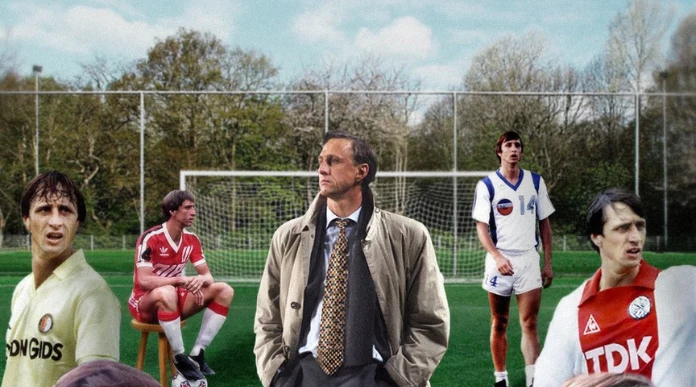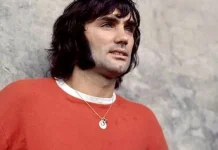There are few names in world football with as much power as Johan Cruyff. Not only was Cruyff, revered both for his brilliance on the field and for the deep influence he wielded over the tactical evolution of the sport, a FIFA legend, he was also and this is hard to imagine a much more comfortable figure than the one we have come to know. His legacy is still felt, from youth academies to elite clubs, from grassroots coaching manuals to the top tiers of international competition. And now let’s examine the life and stats of this footballing great and some of their contributions.
His Early Life and Rise to Fame
Hendrik Johannes Cruijff was born on April 25, 1947 Amsterdam, Netherlands. Growing up in the working-class district of Betondorp, he entered Ajax’s youth system at 10 years old. He showed great technical ability, intelligence in possession and understanding of the game from a young age.
Cruyff made his senior Ajax debut in 1964 aged only 17. He became the focal point of the team and ushered in a new era of dominance.
Club Career and Stats
- Ajax (1964–1973)
- Appearances: 240
- Goals: 190
- Eredivisie Titles: 6
- KNVB Cups: 4
- European Cups: 3 (1971, 1972 & 1973)
He also played a crucial role in developing and promoting the tactical philosophy known as Total Football, in which players fluidly interchange positioning and mixed responsibilities. Ajax, coached by Rinus Michels, became the best team in Europe, and Cruyff was the beating heart of it.
- FC Barcelona (1973–1978)
- Appearances: 143
- Goals: 48
- La Liga Titles: 1 (1973–74)
- Copa del Rey: 1
In 1973, Cruyff signed for FC Barcelona for what was then a world-record transfer fee of about $2 million. His impact was immediate. In his first season, he guided the club to the La Liga title, their first in 14 years, and a memorable 5–0 victory against arch-rivals Real Madrid at the Santiago Bernabéu.
Final Playing Years
Cruyff also played for the Los Angeles Aztecs, Washington Diplomats and Levante, before returning to Ajax and ending his career at Feyenoord, where he led them to a surprise league and cup double in 1983–84.
- Total Club Appearances: 520
- Total Club Goals: 290
- International Career
- National Team: Netherlands
- Caps: 48
- Goals: 33
- World Cup Appearances: 1 (1974)
- Best Finish: Runner-up (1974)
His international career was brief, but his impact was electrifying. He carried the Netherlands into the final of the 1974 FIFA World Cup, dazzling crowds with his dribbling, vision and leadership. Although they lost to West Germany 2–1, Cruyff was named winner of the Golden Ball as the tournament’s best player.
The world was introduced to the Cruyff Turn during this tournament, a deceptive move where Cruyff pretended to pass the ball, dragging it behind him and spinning past the defender. The move has become a staple of football training around the world.
Managerial Legacy
Cruyff was not only a great player, but a phenomenal manager as well.
- Barcelona Manager (1988–1996)
- La Liga Titles: 4
- Copa del Rey: 1
- UEFA Champions League 1 (1992) – the club’s first
- European Super Cup: 1
As FC Barcelona manager, he constructed the legendary “Dream Team,” with players like Ronald Koeman, Hristo Stoichkov, Pep Guardiola and Michael Laudrup. He transformed the club’s playing philosophy, making possession, technique and attacking football the order of the day. This philosophy, one of the tenets of Total Football, remains at the heart of Barcelona’s DNA.
Legacy and Honors
- Ballon d’Or Victories: 3 (1971, 1973, 1974)
- 1974 FIFA World Cup Golden Ball
- Dutch Footballer of the Year: 4 times
- La Liga: Barcelona Legend And Camp Nou Statue
Cruyff died in 2016, but his impact lives on. The family football legacy continued with his son, Jordi Cruyff, who became a professional footballer and manager. And protégés such as Pep Guardiola have followed his footballing philosophy around the world.
The Enduring Legacy of Johan Cruyff: A Footballing Revolution
Johan Cruyff was not merely a footballer; he was a thinker, a pioneer, the philosopher of the game. His influence transformed the game — tactically and visually, but also ideologically. From the panache of the Cruyff Turn to the philosophy of tiki-taka football, his legacy remains a source of inspiration to generations. In every pass, in every youth academy, and in every fan’s heart, the spirit of Cruyff burns on













